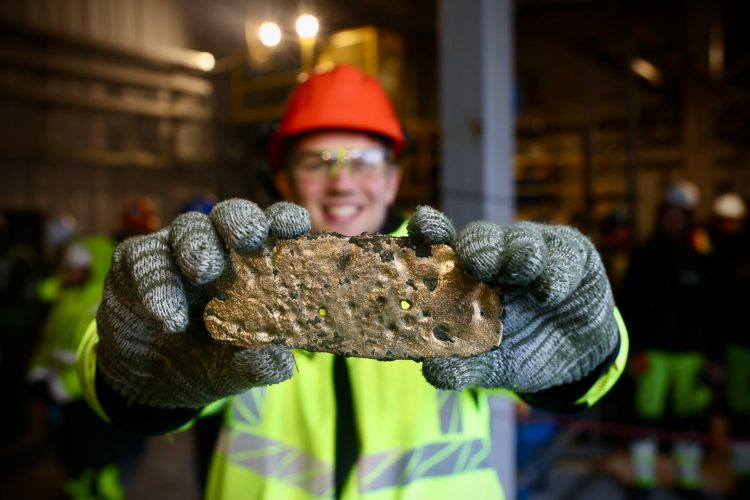The term “Space Gold Rush” evokes images of a new frontier where vast wealth lies beyond Earth’s atmosphere, waiting to be tapped. As technological advances accelerate and private and public investments surge into space exploration, asteroid mining, orbital logistics, and related industries are emerging as potential pillars of the global economy. The key question for investors and industry watchers in 2025 is whether this burgeoning sector is beginning to produce blue-chip companies — those with durable business models, strong cash flows, and leadership positions capable of delivering sustained growth. Examining the feasibility timelines for asteroid mining, the rise of orbital logistics providers, and the spin-offs from defense contractors offers insights into how the space economy could transform from speculative ventures into reliable blue-chip opportunities.
Asteroid Mining Feasibility Timelines
Asteroid mining has long been the stuff of science fiction, but recent developments suggest the concept is approaching technological and economic viability. Advances in propulsion, robotics, and remote sensing have enabled companies to identify near-Earth objects rich in valuable minerals such as platinum, nickel, and rare earth elements critical for high-tech manufacturing and clean energy technologies. Several startups and established aerospace firms have announced mission plans aimed at prospecting and eventually extracting these materials.
While commercial-scale asteroid mining is not yet operational, feasibility timelines have shortened. Industry experts generally agree that by the early 2030s, initial missions will begin limited extraction and sample return operations. These early efforts are expected to focus on proving technology and supply chain logistics rather than immediate profitability. However, governments and private investors are increasingly funding demonstration missions, creating an ecosystem that supports steady technological progress.
This phased approach reduces investment risk and signals maturation of the space mining sector. Companies with strong intellectual property portfolios, experienced management teams, and partnerships with national space agencies are emerging as front-runners. For investors, these firms represent potential blue-chip candidates if they successfully transition from exploration to extraction and supply contracts with terrestrial industries.
Furthermore, progress in asteroid mining could eventually ease terrestrial resource constraints, impacting global commodity markets and supply chains. Companies controlling these off-planet assets may wield significant strategic and economic influence, akin to legacy mining conglomerates on Earth. This underscores the transformative potential and scale of the sector.
Orbital Logistics Providers
The viability of the space economy depends heavily on efficient and cost-effective logistics in orbit. Orbital logistics providers, including satellite servicing companies, in-space transportation, and debris management firms, are becoming essential infrastructure players. They enable the assembly, refueling, and maintenance of spacecraft and mining equipment in microgravity environments, reducing mission costs and increasing operational lifespans.
Several private companies specializing in orbital logistics have secured contracts with government space agencies and commercial satellite operators. Their services include robotic arms for satellite repairs, reusable orbital tugs for cargo movement, and platforms for in-space manufacturing. As launch costs continue to decline and satellite constellations grow, demand for these logistics solutions is projected to skyrocket.

This growing sector resembles terrestrial logistics firms in its potential for recurring revenue streams and broad customer bases. Orbital logistics providers are positioning themselves as indispensable intermediaries in the space supply chain, increasing their prospects of blue-chip status. Their ability to innovate, scale operations, and maintain high reliability will be critical.
Additionally, these companies benefit from partnerships and spin-offs involving defense contractors and aerospace giants, leveraging existing expertise and resources. They are also at the forefront of establishing regulatory standards and safety protocols in orbit, enhancing their reputations and competitive moats.
Defense Contractor Spin-Offs
Defense contractors have long been major players in space technology development, with deep expertise in aerospace engineering, satellite communications, and advanced propulsion systems. In recent years, many of these firms have created spin-offs or subsidiaries focused specifically on commercial space ventures, including asteroid mining support, orbital logistics, and space-based surveillance.
These spin-offs leverage established government contracts, proprietary technologies, and robust supply chains to rapidly scale commercial operations. Their financial stability and track records of technological excellence give them an edge over pure startups. Moreover, their involvement often signals strong government interest and potential policy support, factors that enhance long-term viability.
The convergence of defense expertise and commercial ambition is fostering a new class of companies that blend innovation with operational rigor. Investors are increasingly viewing these spin-offs as blue-chip candidates because of their diversified revenue streams, strategic importance, and leadership in emerging space sectors.
Furthermore, defense contractor spin-offs often collaborate with universities, research institutions, and international partners, accelerating technology development and market expansion. This ecosystem approach strengthens their resilience and adaptability in a rapidly evolving industry.
Conclusion
The “Space Gold Rush” is no longer merely an aspirational vision but a developing economic reality poised to generate new blue-chip companies. The accelerating feasibility of asteroid mining, the critical role of orbital logistics providers, and the strategic spin-offs from defense contractors collectively illustrate a maturing space economy. While significant technological and regulatory challenges remain, these sectors are carving out sustainable business models with recurring revenues and strategic market positions.
For investors seeking exposure to the final frontier, identifying companies that combine innovation with operational strength and solid partnerships is key. The space economy’s trajectory suggests that the next generation of blue-chip firms may well come from this exciting and transformative domain, reshaping global industries and investment landscapes in the decades ahead.












































